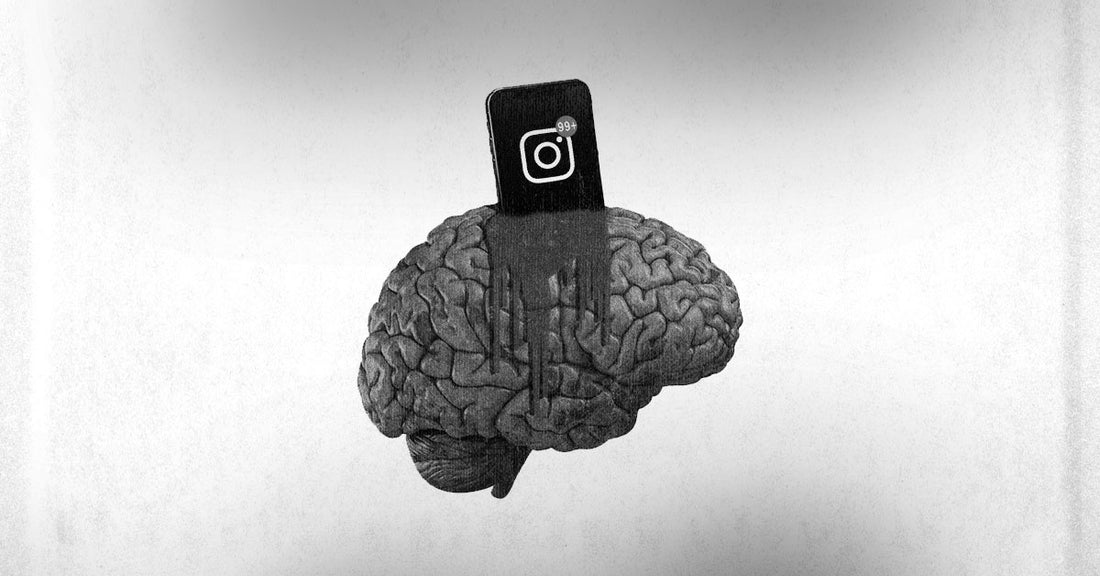Science has proven that our gray matter is highly hackable—for better and for worse. In 1962, MIT scientist Joseph Altman discovered that our brains generate new nerve cells well into adulthood. But the idea of brain-hacking is not new—humans have been doing it for centuries. The mnemonic memory palace, advertising, sports, Ritalin, journaling and even empathy are all types of mental hacks.
A more worrisome aspect of modern-day brain-hacking is how tech giants are able to invade our hardwiring. Social media’s brain-hacking ability is akin to a kind of mind control designed to sell you things (think meal-prep company ads shown to someone who looked up healthy recipes). And in the wrong hands, this kind of seeping mental hackage spreads conspiracies and sways elections. (Russian troll-farms ring a bell?)
Five months after Facebook started up, Napster founder and self-described hacker Sean Parker joined the nascent company, and, largely because of his short time there, now has an estimated worth of 2.6 billion dollars. (Hacking your brain is big business.) Parker has described Facebook as “a social-validation feedback loop … exactly the kind of thing that a hacker like myself would come up with because you’re exploiting a vulnerability in human psychology.”
Knowing that social media is created, often by actual hackers, to be persuasive and our brains are more porous than we may imagine, how can we stop big tech from sneaking upstairs? Here are three ideas for keeping tech hackers and fake “information” out of your head.
“Urgent” Notifications Are an Evolutionary Hack
Do you ever feel a ghost vibration of your phone or smartwatch? See a notification from a social app and feel utterly compelled to check it right. At. That. Moment? We’re wired to respond to perceived immediate problems, and our phone going off with a like or new comment triggers our need to give it instantaneous attention. As tech product design experts put it in a co-authored article, “They are the Pavlovian bell of the 21st century, and they get us to check our tech incessantly.”
To un-train your inner Pavlovian dog, turn off your push notifications from social media apps. Set specified short increments—no more than 30 minutes each day—when you check and reply to notifications.
Break Bot Behavior
The kind of multitasking encouraged by social media design is exploitative of your brain span, dividing attention and not allowing for true focus.
According to the Center for Humane Technology, “these platforms keep us continuously engaged, triggering repetitive, automated behavior and weakening activation in the prefrontal cognitive control regions of our brains.” The center goes on to cite research by the National Academy of Sciences that demonstrated a link between media multitasking in youth and “poorer memory, increased impulsivity and changes in brain function.”
This research suggests that we should protect our brains by avoiding a constant flood of media input. Embrace the quiet in-between moments when you might normally reach for your phone. When’s the last time you waited in line at the grocery store or DMV without busting out your iPhone? Give it a try. Once a day, opt for a five-minute meditation instead of succumbing to the infinite scroll.

Read more: The Surprising Ease of a Digital Detox
Burst Your Bubble
At this point, digital media literacy should be a skill taught in kindergarten. An MIT study found that people are more likely to spread “novel information” online, and guess what kind of “news” classifies as the most novel? “We found that false news was more novel than true news,” the study reports. “Falsehood diffused significantly farther, faster, deeper and more broadly than the truth in all categories of information.” The effects were most pronounced when it came to fake news about politics.
The Pew Research Center found that only 17 percent of U.S. adults have the skills and confidence to learn new information effectively online. Since “disinformation-for-hire” actors are now a thing, and social media bubbles tend to create an echo chamber for what we are already inclined to believe, make sure you’re well versed in being able to think critically and identify falsehoods. The Harvard Business Review advises to “question assumptions, reason through logic and diversify thought” in order to further develop critical thinking skills.
Liza Monroy is a writer based in Santa Cruz, CA. You can find her collected books, articles, and essays on lizamonroy.com and follow her on Instagram.
Header image by Gaspar Uhas via Unsplash.
Read more: This is Your Brain on Gut Health (And Vice Versa)
Read more: How Does Social Media Affect Our Physical Health?
Read more: How to Get Back in Sync with Your Circadian Rhythm




